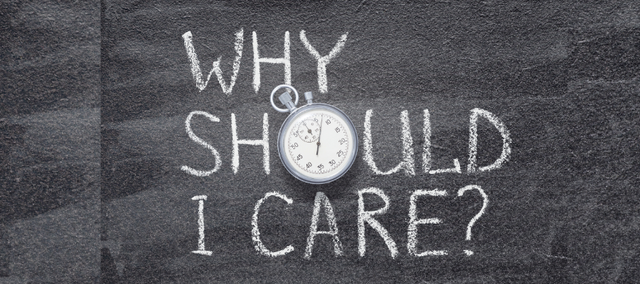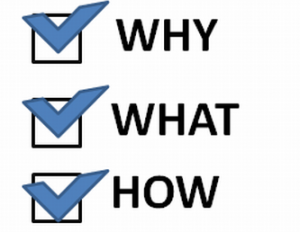Are you answering the right questions if you don’t want to bore people?
- Written by
- Matthew Sherrington
- Added
- March 23, 2016

Where do most nonprofits tend to start when it comes to telling their story? They start with themselves: ‘Who We Are’, or on their website ‘About Us’. And then they move on to ‘What We Do’, a description of the activities or themes they work on. More about ‘me’
But people generally aren’t interested in you. They are interested in the cause or issue they are passionate about. They are interested in the difference they can make. So it’s not about you. And starting with the Who We Are and What We Do, keeps you talking just about yourself: me, me, me.

Only later, if you remember, or if you’ve given your poor listener time to ask a question, might you go on to the ‘why’ – the nature of the problem and why it matters.
Who we are? What we do? Why it’s a problem? Wrong questions. And in the wrong order.
Here are the right questions to ask yourself and to answer, in the right order that will make your story much more interesting, passionate and compelling.
Why?
Why do we exist? What’s the problem, the scale of the need? Why is it wrong? This matters because you want to engage people so that they will help solve something. That means you need to tell them about the problem to reveal the gap that only they can plug to put it right.
Why does it matter to me? Why do you care, why do you do it? Presumably you have an idea of what things would look like if everything was put right – a vision. And you are motivated by values, principles and beliefs. We’re in the game of humanity and justice, the emotions of compassion and anger. Wearing your heart on your sleeve and backing it up with a bit of head if you need to. Connect with your audience emotionally and connect with their values, by sharing yours. If they don’t share yours, the chances are you just won’t have much in common and they won’t be that interested in you anyway.

What?
What do we achieve? Pay attention, this is not What We Do. That’s just listing the activities that keep you busy and checking them off as outputs when they’re done. The answer to this question is the difference you make, the benefits people experience and feel. Yes, it’s the impact question.
Too many people in the world don’t have access to clean water. That’s a bad thing. People fall sick and die as a consequence. Water pumps and taps provide clean water. Yippee – that’s the activity and output and a great thing they are too. The impact is better health, freed-up time for children to go to school and get an education, time for women to do something else to earn a living and so improve their families’ well-being. Water changes everything.
Disabled children are stuck and isolated at home. A wheelchair, and the chance to go to activity groups, gets them out. That’s what you do and the output. The impact is independence, friendship, confidence, self-worth and having fun like every child should. Carers in the family get a break too. A wheelchair sets a child free.
How?
How do you do that? (This is the old ‘What We Do’, but framed differently). This is the water pump or the wheelchair. It’s not the main focus anymore; it’s how you get to ‘What you Achieve’. It’s even an afterthought, to answer if you’re asked. (‘Oh, yes, if you’re interested, we provide these things, deliver services that way, use our expertise to work with and influence governments so more people get what they need”). There you go. A lot happens behind the scenes. Take people back-stage if they are interested. Otherwise, make the main thing the main thing and keep it in the spotlight.
Why?
Why us? (This is not 'About Us' or 'Who We Are'). Why you? If you’ve got someone hooked on the problem, the vision, the difference they could make and they still need a bit of reassurance that you’re the real deal and not some dodgy charity, that you can really deliver the goods, then yes, why you? What makes you special? What’s your record of achievement? What’s your reputation? You are being asked because they want to trust you.
People don’t care about you, they care about the cause. So don’t start with you, finish with you, if you have to. Better still, finish with the supporter: ‘It won’t change without you. What could you do?”
So, ask yourself not Who, What and Why? Ask Why, What and How. And then ask. By then, they’ll be hooked.
PS. You should have watched this Simon Sinek TED Talk on Start with Why by now. If you haven’t, shame on you, Do it NOW.


















